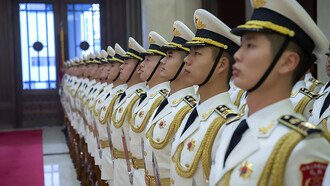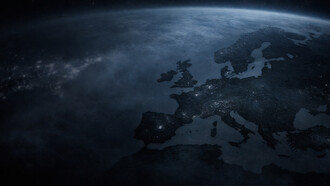On the 29th of May, 2024, millions of South Africans took to voting stations across the country to cast their ballots. The number of voters has dwindled as elections have past, but 30 years into democracy, citizens braved the biting cold and stood for hours in queues that snaked down corridors and around sports fields, scenes last seen in the first democratic elections of 1994.
More than a month later, the re-elected leader of the country, President Cyril Ramaphosa called a 9 p.m. ‘family meeting’ to announce the Cabinet for the country’s seventh administration. The incoming Cabinet makes history as this is the first time that a number of parties spanning the country’s political spectrum have come together to form a single national government.
This follows the formation of the Government of National Unity (GNU), which the President has explained to be a fulfilment of the wish of the electorate – who did not choose an outright majority in the elections – for all political parties to collaborate in the formation of government. A government that is representative, responsible and accountable to be united in its action and purpose, providing a firm basis for greater stability, coherence, and implementation.
South African is a nation of people who are resilient, with an ability to rally together when they’re called upon, but it is also a nation that has grown wary. These elections were not just a whisper for change that at times gets carried off by the wind but a people taking a firm stance, making a pronouncement that the time is now. In the light of loadshedding, water shortages, and the rising cost of living, people have become angered by their struggle whilst led by corrupt leaders who continue to plunder the country but make no effort to provide services to the people so they can lead lives in a manner that is dignified and protected.
Before every election there is a busyness about the country. Projects are rolled out at every end, from the opening of new clinics to long overdue maintenance of existing infrastructure, leaving us with more questions than answers, and in a country where loadshedding is a painful reality, the lights stay on.
As the elections inched closer, we dreaded the return of loadshedding, five weeks later and the lights are still on. The streets are still being cleaned and painted, the grass is still being cut and new streets lights being installed. Perhaps I wear rose-coloured glasses, but everyday I see the work being carried out, I hold onto hope that this is yet another ‘new dawn’ for this nation, 30 years after the first. The elected have so far made good on their promise to work together to be united and purposeful.
In the wake of the election, the atmosphere was charged with cautious optimism. Many South Africans reflected on the transformative power of their vote, recalling past struggles and the sacrifices made to secure this hard-won democracy. Community leaders and activists emerged as beacons of hope, urging citizens to remain engaged and vigilant in holding their leaders accountable. Public discussions flourished, from neighborhood gatherings to online forums, where people exchanged ideas about the future they envision. This collective energy fostered a renewed sense of agency, as citizens recognized that their voices, united in purpose, could shape the trajectory of the nation moving forward.
As a 30 year old South Africa, my own life is a timeline for the growth of the country, as I grow and become responsible and accountable for my personal progression, as does this country. A ‘young democracy’ can only remain ‘young’ for so long. We have often heard of a maturing democracy, within which the government changes in structure and function.
The liberation movement that leads the country into freedom cannot remain the government that rules the same country. The reason it was formed was the deliver the people from the plague of the day, in this case from apartheid and not to with the mind and primary purpose of leading and protecing the people socially and economically. To ensure the growth and advancement of these people, the government itself needs to grow and advance in a world that changes everyday.














